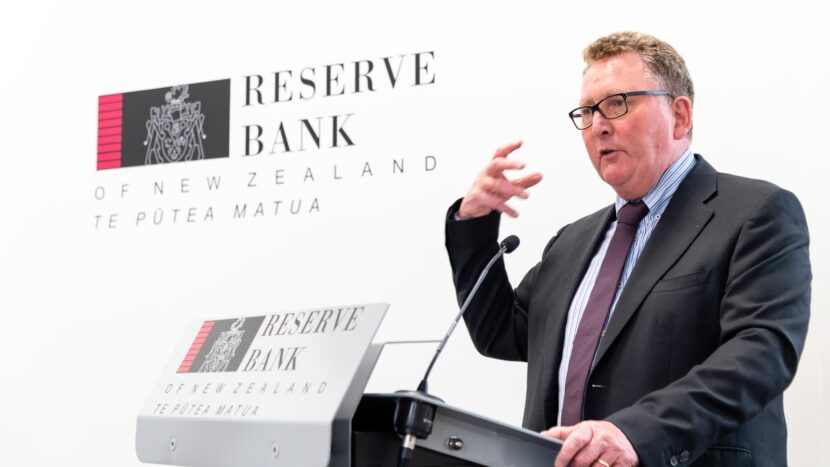New Zealand (NZ) is hit by a bad wave of inflation. According to reports New Zealand inflation rate hit 5.9 percent recently, experiencing the fastest growth rate since 1990. This is a very rapid increase as the inflation rate just in September, 2021 was at 4.9 percent.
“Rising inflation leads to rising interest rates which makes it even tougher for people to get ahead. And the reality is people aren’t being able to get ahead with inflation like this,” said National party leader of NZ, Christopher Luxon in a statement published in NZ Herald.
He pointed out the wasteful spending by the government after inflation reached highest in the last 30 years. He also expressed concern over the inflation’s impact on the citizens of the country.
“The National leader said the Government needed to rein in spending while it could and ensure any spending was high quality,” the NZ Herald article said.
According to statistics issued by New Zealand, the cost of construction, petrol, and rentals increased even more sharply in the final three months of the year, pushing the consumer price index up 1.4 percent. The findings were generally in line with forecasts; according to a survey of economists, inflation for 2022 was expected to be 5.8 percent.
“You have to get really clear right now about the nice-to-do stuff and the must-do stuff. Like you do in your own household budgets, if you don’t reshape now, you’ll end up making a whole bunch of really tough decisions down the road which will really be about austerity and some really serious cuts. We don’t want to see that, ” said Luxon.
He further mentioned about the now-defunct Auckland Harbour cycle and pedestrian bridge, the cost of petrol, taxes, and Kainga Ora, which he claims received more resources but didn’t provide better results.
“The problem is we have a constrained economy. We’ve got our borders shut, we’ve got massive labour shortages and we’ve got big spending in government that is actually competing with private sector resources and that is driving into inflation. It’s just about taking a step back and thinking very dispassionately about actually, is that a good investment or not. I’d put it to you that having an idea that you’re going to build an $800 million walking and cycling path then spending $51 million over four months just looking at that project or thinking about it, that’s the sort of dumb stuff that needs to be stopped,” he added.
New Zealand is one of the first major economies to boost interest rates after the pandemic began in October. NZ prime minster Jacinda Ardern stated the inflation to be due to off-shore factors.
“New Zealand is alongside every other country that is experiencing this problem of high crude oil prices,” she said in a statement.
While almost all of the subgroups that make up the theoretical basket of products used by Stats NZ to assess inflation increased, the most significant increase was in the home utilities group, which increased by 2 percent.
This was mostly due to a 4.6 percent increase in the cost of building new homes. The cost of building new residences in New Zealand was 16 percent higher in 2021 than it was in 2020, following similar rises in the previous two quarters.
At the end of 2021, transportation was the second-largest source of inflation, owing to record gasoline costs. According to Statistics New Zealand, the average price of 91 octane gasoline increased by 30 percent last year, rising from 1.87 NZD to 2.45 NZD per litre.
While some of the causes of inflation are likely to be temporary, excessive inflation can become self-fulfilling as workers and firms strive to recoup their losses by demanding salary increases or passing higher prices on to consumers.
Economists have cautioned that the high cost of fuel, in particular, is expected to drive up prices across the board as businesses try to recuperate lost margins from increased transportation expense.
“This underlying strength in pricing pressures indicates that inflation is likely to remain elevated for at least the next year,” Westpac senior economist Satish Ranchhod said to the NZ Herald.
Although majority of the price pressures are originating from outside, the numbers released on Thursday show that New Zealand’s economy is already generating significant local inflation. Construction, rental, and rates drove non-tradeable inflation, which is approximately equivalent to domestic inflation, to 5.3 percent in 2021, according to Statistics New Zealand.
“Inflation isn’t an offshore problem that New Zealand is caught up in,” Infometrics economist Brad Olsen said to NZ Herald.
He added that there are real and intense pressures throughout the New Zealand economy which are seeing supply unable to match the demand for goods and services.
Also Read: Global economic growth to drop 4.4% after slowdown in U.S. and China: report
